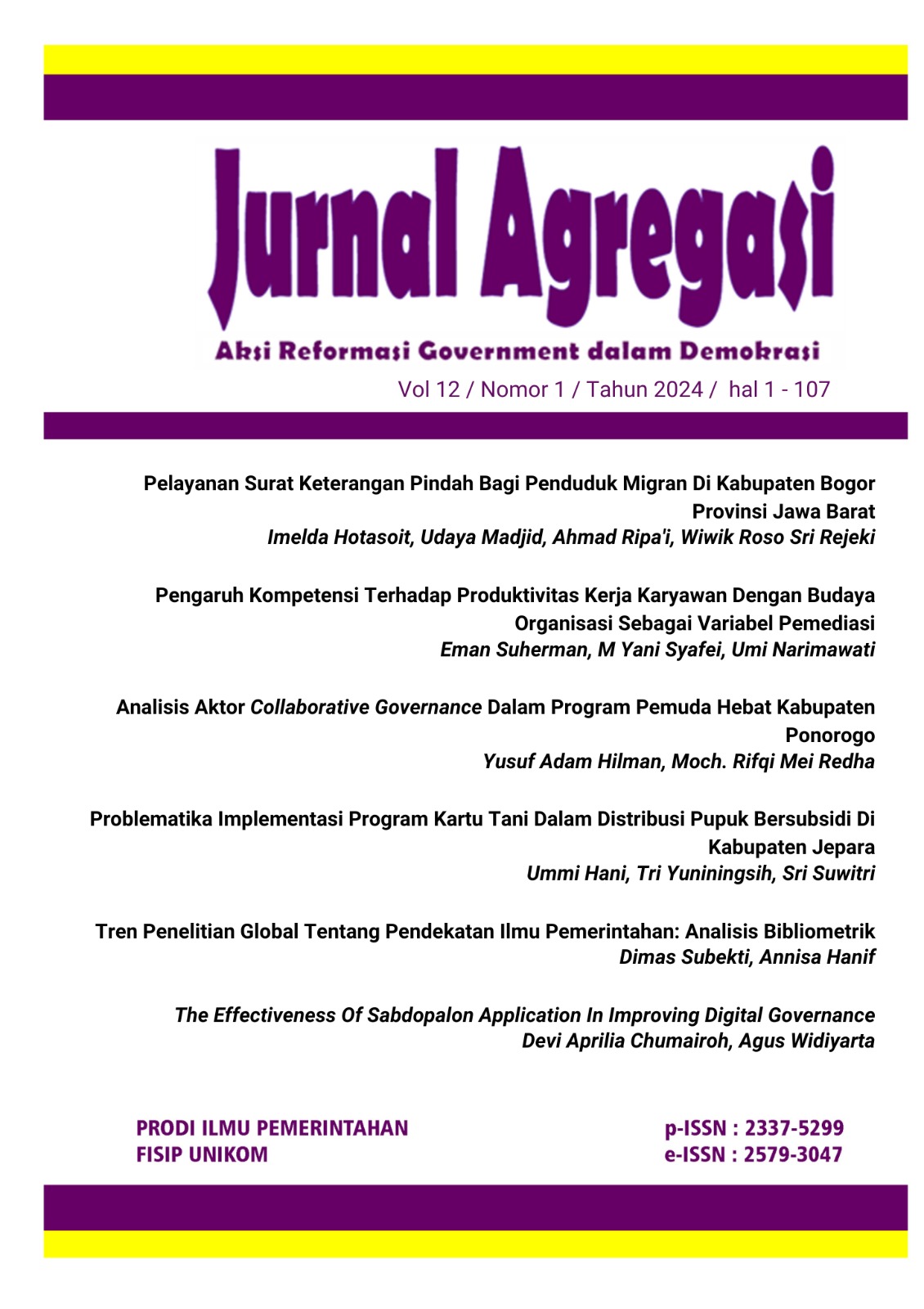Problematika Implementasi Program Kartu Tani Dalam Distribusi Pupuk Bersubsidi Di Kabupaten Jepara
DOI:
https://doi.org/10.34010/agregasi.v12i1.12642Keywords:
Distribution, Implementation, Farmer Card, Fertilizer SubsidyAbstract
Jepara Regency is an area that has implemented farmer cards for 6 years, but its implementation still experiences problems from the initial application for the farmer card to the distribution of subsidized fertilizer. The aim of writing this article is to find out how the farmer card program is implemented in Jepara Regency and the factors that influence it. This article uses George C. Edward III's implementation theory. The method used is a descriptive qualitative approach, with analysis of secondary sources such as journals, newspapers, online information (official websites and news portals). This article shows that the implementation of farmer cards in Jepara Regency is experiencing problems, including the problem of not fulfilling the 6 T principles, technical and non-technical problems starting from applying for registration, late and late distribution of farmer cards, allocation of subsidized fertilizer that is not absorbed optimally, to the existence of fraud at KPL kiosks that sell fertilizer using a package system.
Downloads
Downloads
Published
Issue
Section
License
This work is licensed under :

Creative Commons Attribution-NonCommercial 4.0 International License









